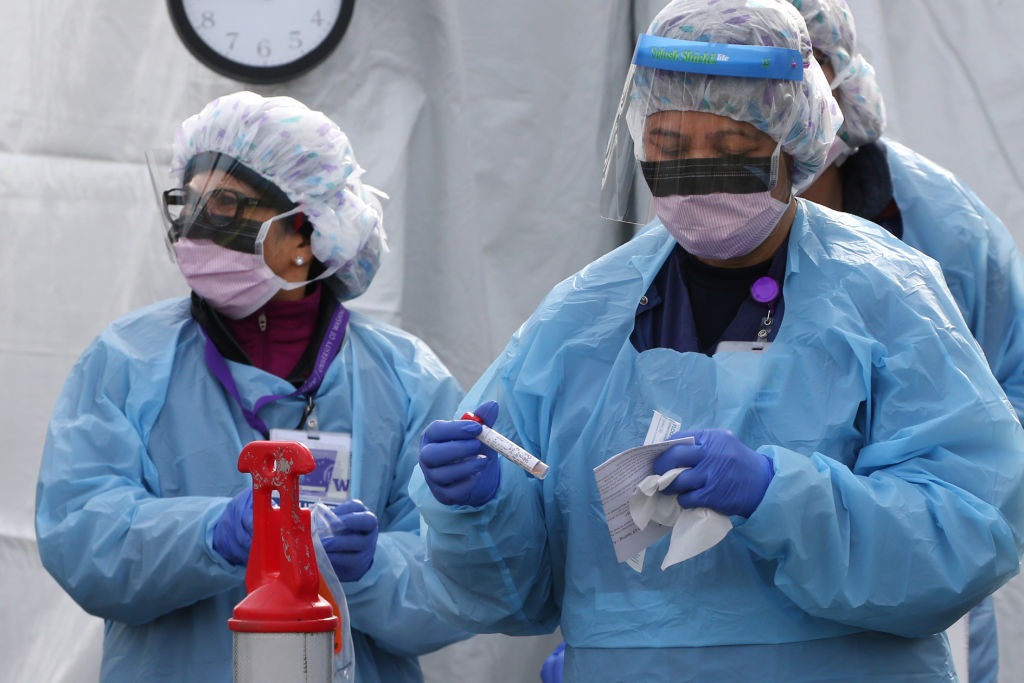
Nursing education has proved to be quite challenging due to Covid-19, with requirements for clinical learning from the statutory body remaining unchanged and increasing demand for qualified nurses, writes Jennifer Chips, Felicity Daniels, Penny Martin, and Maggie Williams.
The Covid-19 pandemic has disrupted higher education - and specifically nursing education - around the world. An international survey indicated that 73% of nurses associations reported that undergraduate nursing education has been disrupted. Nursing education in South Africa is no exception.
In March 2020, at the beginning of the pandemic, South Africa's higher education institutions, as with many organisations internationally, suspended face to face learning and teaching. This included halting nursing students' work-integrated learning at clinical facilities. A new mode of education was implemented, underpinned by a humanitarian paradigm of "no student will be left behind", acknowledging the human welfare challenges students face during the pandemic. University education went online, and the adoption of e-learning, using learning management platforms and digital media, increased along with student and staff digital skills.
The new education approach, aimed at assisting students through these unprecedented times, poses many challenges for nursing education institutions such as the School of Nursing at the University of the Western Cape (UWC).
Nursing education institutions in South Africa are accountable to a range of qualification standards overseen by Education and Training Quality Assurance bodies such as the statutory body regulating nursing education, the South African Nursing Council (SANC), in terms of the Nursing Act 33 of 2005.
Ongoing challenge
On a student's completion of a nursing programme, the institution is bound by legislation to provide evidence that a student has achieved the SANC theoretical and work-integrated learning outcomes of a programme, for which the student is registered as a pupil with SANC.
Supporting continued access to education and completing the 2020 and 2021 academic years is an ongoing challenge.
The pandemic has resulted in the loss of many health care professionals and has left the health care system with a depleted and exhausted workforce.
The urgency to replenish the workforce places additional pressure on accredited nursing education institutions to ensure sufficient throughput of a competent and safe nursing workforce for the country without compromising the integrity and credibility of programmes. However, all efforts must be taken to contain the spread of Covid-19 while nursing education continues.
READ | 'Nursing is not a profession, its my calling' - Nurses honoured on international nursing day
Currently, UWC has two Bachelor nursing programmes accredited by SANC - the new R.174 programme implemented in 2020 and the legacy R.425 programme, currently being phased out. These programmes require between 2 500 to 4 000 clinical learning hours, respectively, over and above the theoretical component of the programmes. Despite the challenges posed by the pandemic, the University, which has about 1 000 nursing students, is accountable for ensuring that students meet the SANC requirements. For example, the 2020 final-year students were not allowed to complete their programme in March 2021.
In this context, the pandemic has resulted in unique challenges for nursing education institutions and nursing students, with concerns about graduating competent nursing professionals, exposure to Covid of high risk students and staff who have not yet received vaccinations, and consequent delays in throughput and completion exacerbating existing nursing workforce shortages.
Major disruptions were experienced in clinical learning, especially clinical placement in health facilities. The ICN's survey showed that 46% of countries experienced delays or cancellations of nursing students' clinical placements. Another 41% of countries reported that placements were restricted to certain areas. In the Western Cape, nursing students only returned to clinical practice from August 2020 - having lost five months of clinical learning time.
Innovative strategies
With the requirements for clinical learning from the statutory body remaining unchanged, and only 20% of the programme's clinical learning time allowed to occur in the clinical skills laboratory (SANC Circular 11/2020), UWC has had to identify innovative strategies for clinical education to continue online and in the skills laboratory. This includes sourcing appropriate online clinical videos and supporting materials, producing new material using PowerPoint as a video editing tool and filming short "scenes", simulating the clinical environment, providing a virtual tour of the clinical skills laboratory for new first-year students, and ongoing online support groups moderated and supervised by academics and clinical supervisors.
To ensure integrated learning, UWC, as with other nursing education institutions, requires students to complete a minimum of 80% of clinical learning hours of a nursing module to gain entry to the final examination. Based on all current circumstances, and so as not to disadvantage students, a concession was made for the 80% to be based on the decreased number of hours that students were allowed in clinical practice due to the Covid-19 pandemic. Although the 80% concession was made, the 2020 student cohort was still required to complete the 4 000 clinical hours in the R.425 programme before they could complete their studies and graduate.
READ | Inside an ICU: 'We're filling hospital beds as quickly as Doves takes away the bodies of the dead
In addition to dealing with reduced access to clinical learning opportunities, nursing students returning to clinical practice were also faced with changing working conditions, with perceptions of increased risk to self and to family members, and different protective ePquipment requirements for the training of students.
UWC's School of Nursing developed an evidence-based 3-day online programme to prepare students for the return to clinical practice.
Using a psychological first aid model, the programme focused on increasing efficacy (revision of infection control methods), increasing confidence (provision of information on the pandemic) and completion of required national PACK guidelines (Coronavirus - Guidance for managing adults in Primary Health Care facilities Updated December 2020, Western Cape Edition). This included PPE provision for students and clinical staff to ensure that they were adequately prepared for working in the facilities.
Increased interest in nursing
High-risk students were identified and counselled, and clinical support roles were adjusted to ensure ongoing support for students in practice. Despite the major impact of the pandemic on nursing education, UWC successfully graduated the 2020 cohort in February 2021.
The pandemic has driven increased interest in nursing education and recognition of the profession, with a more than 30% increase in the number of applications to nurse training programmes internationally. This trend has been mirrored in South Africa - in 2021 UWC received more than 8 000 applications for 150 places in the Bachelor of Nursing programme.
However, the nursing profession needs more than recognition and respect; the country needs to invest in nurses and nursing education, recognising the incredible efforts made by these individuals and programmes during extraordinary times to ensure the training of competent nurses that the country can be proud of.
- Prof Jennifer Chipps, Director, School of Nursing
- Prof Felicity Daniels, Division Head, Academic Planning, School of Nursing
- Prof Penny Martin, Division Head, Academic Programme, School of Nursing
- Prof Maggie Williams, Division Head, Clinical Programme, School of Nursing.
To receive Opinions Weekly, sign up for the newsletter here.
*Want to respond to the columnist? Send your letter or article to opinions@news24.com with your name and town or province. You are welcome to also send a profile picture. We encourage a diversity of voices and views in our readers' submissions and reserve the right not to publish any and all submissions received.
Disclaimer: News24 encourages freedom of speech and the expression of diverse views. The views of columnists published on News24 are therefore their own and do not necessarily represent the views of News24.




 Publications
Publications
 Partners
Partners























